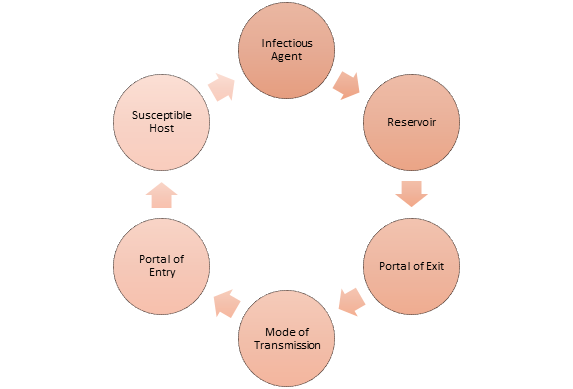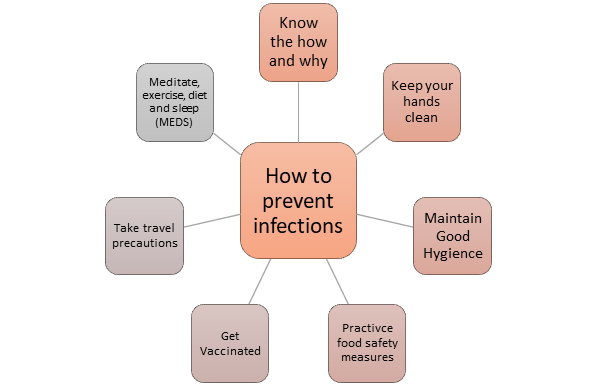
International Infection Prevention Week (IIPW) was incepted in 1986 to bring to the forefront the significance of infection prevention. [1] The Association for Professionals in Infection Control and Epidemiology (APIC) leads this annual endeavour to shed light on infection prevention amongst people. The tradition has grown in magnitude and spread across the world, bringing widespread benefits to all groups. It ensures safer practices to address the onset of infections. [1]

IIPW serves as a virtual community, global in scale, which encourages people to learn the significance of infection prevention. The knowledge of infection and its prevention is not the exclusive domain of healthcare professionals. This knowledge, when imparted to the public, helps to stop the spread of infection. [7]
Recognised on the third week of October annually, IIPW takes place on October 17-23, 2021. This year’s theme, “Make Your Intention Infection Prevention”, aims to disperse the information behind infection prevention and endeavours to inspire the next generation of infection preventionists to take action. [3]
Infection preventionists (IP) are those who work to prevent infections in healthcare facilities. IPs play a crucial safety in the IIPW awareness campaign. The IIPW 2020 reflected on roles fulfilled by IPs and applauded their noble effort to eradicate infection. [2] Apart from their dedication amidst a global pandemic, IPs are instrumental in keeping infection at bay by implementing infection prevention control measures to safeguard against day-to-day infectious risks. [3]
Table of Contents
How infections occur:

Germs are spread from person to person through a chain of events. It becomes imperative to break the chain to stop the spread of infectious diseases. [6]
The chain comprises six links: the infectious agent, the reservoir, the portal of exit, mode of transmission, the portal of entry and the susceptible host. [6]

- The infectious agent is recognized as the pathogen that causes the disease.
- The reservoir refers to the environment where the germ resides which includes people, insects, animals, etc.
- The portal of exit is considered the way how the pathogen leaves the reservoir.
- Mode of transmission refers to the way the disease is transmitted to the host. Direct and Indirect contact, inhalation and ingestion are the common modes of transmission.
- The Portal of entry is how the germ enters the susceptible host. This usually takes place through broken skin and mucous membranes. [6]
- The Susceptible host refers to the vulnerable person who is at risk of getting the infection. It could be anyone who falls victim to the infectious pathogen.
Interrupting the chain at any link would stop the spread of infection. Follow the safety protocols and guidelines presented by experts to reduce the transmission of diseases. The measures listed in the figure above serves as a starting position in the fight against infection. [6]
Ways to prevent infections:

[4, 5]
The measures displayed in the figure was further expanded as follows:
- Knowing how and why infection occurs is the best way to prevent infection as it advocates taking action before any risk of infection materialise. Germs enter the body through openings such as our ears, mouths, and noses. They can also be transmitted to animal or insect bites and through our skin. Knowing to exert caution and adhere to safety measures reduced the onset of infection.
- Washing hands is an easy way to avoid the transmission of germs. Use soap, lather and wash thoroughly. The use of a sanitiser is also encouraged.
- Maintaining good hygiene reduces the risk of infection. Measures include covering your mouth and nose when coughing or sneezing and washing up after sneezing or coughing.
- Practising good food safety habits reduces the likelihood of infection as pathogens may enter your body through food. Cooking food thoroughly, rinse all fruits, vegetables, meat etc. before cooking or serving are some measures that help kill disease-causing pathogens.
- Vaccinations are considered essential to prevent severe diseases. Follow the advice administered by your doctor and check if any additional vaccinations are required.
- When travelling, ensure you are aware of the area and the likelihood of diseases you may encounter. Consume safe food and water and getting medical shots as advised by a medical professional if required are some of the measures to uphold while travelling.
- Keep healthy by getting adequate nutrition, physical exercise and mental exercise to keep fit. This goes a long way in preventing infection. [4]

Prioritising the needs of patients
One of the pioneers in the pharmaceutical industry in India, Anzen Exports is renowned for manufacturing and exporting high-quality Active Pharmaceutical Ingredients, herbal extracts, nutraceutical ingredients as well as cosmetic ingredients. The organization is committed to answering the needs of patients across a broad range of medical conditions.
For over three decades now, the company has been instrumental in introducing high-quality products as well as services in pursuit of its mission to save and improve lives. Scientific excellence, and a diverse workforce that values collaboration are the cornerstones of the success of this dynamic brand.
For more details, visit www.anzen.co.in
Disclaimer:
Anzen Export’s blog posts have been written with the information gathered from approved medical journals and websites online. Our research and the technical team strives to provide relevant information through such articles. To be best informed, we advise consulting a doctor about an ingredient or medicine before taking it.
References:
https://infectionpreventionandyou.org/iipw/history/
https://infectionpreventionandyou.org/iipw/
https://www.health.harvard.edu/staying-healthy/how-to-prevent-infections
https://infectionpreventionandyou.org/protect-your-patients/break-the-chain-of-infection/
